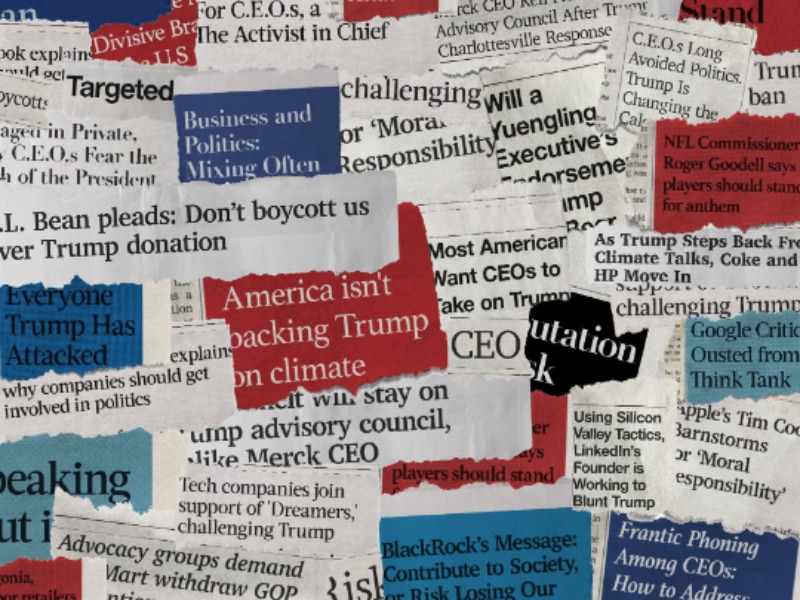Aarti Shah 05 Nov 2018 // 5:25AM GMT

NEW YORK — Brands that are most effective navigating today’s polarized political environment are those with well-defined values that ultimately strengthen relationships, Paul Holmes maintained during a webinar conducted in partnership with Group Gordon last week.
Holmes, founder and chair of The Holmes Group, and Michael Gordon, principal at Group Gordon, explored whether, in an era defined by politicization and polarization, it's possible —or even advisable — for brands to just watch from the sidelines.
“There is no right or wrong as much as there is a determination to stand for what you stand for,” Holmes said. “What has changed is that neutrality is no longer an option.”
Brands have long mixed politics with business, noting examples from the 90s when Levi Strauss ended its financial support of the Boy Scouts based on its stance on gay rights, to the aughts when United Benetton used prisoners on death row as models in its ad, to present day where companies like Patagonia, Nike and Chick-fil-A have benefitted from having firm convictions.
“You now have to actually live the values that you espouse,” Holmes said. “That may make you uncomfortable but ultimately it has the potential to cement and solidify your relationship with employees, consumers and communities.”
Two views on PR have emerged: those who measure PR success like a popularity contest — “the more people you can get to like you, the fewer people will dislike you” versus those who believe the best strategy for building relationships is by “knowing what you stand for and acting as if you really stand for it,” Holmes explained.
The top 10 most trusted companies this year on the Harris Reputation Quotient survey include Chick-fil-A, known for promoting conservative social values, as well as progressive icon Patagonia. What they have in common is that they know what they stand for and remain true to their values. The firm’s research among senior communications executives also found that 62% of CCOs now believe the risk of not taking a stand outweighs the risk of taking a stance.
“It helps to frame the message so it’s about values rather than personal or party politics,” Holmes said. He also pointed out that “the largest corporations in the world -— Amazon, Google, etc — are bigger than most nation states. They have more influence and economic pull than governments of many states. It would be more surprising if they don’t get involved.”
Meanwhile, Gordon questioned how differences between a company’s business goals and stakeholder interests can be remedied.
“If your values are totally misaligned with stakeholders — internal or external — it probably requires and adjustment one way or another,” Holmes said. “The role of PR people works two ways: either persuading external and internal stakeholders to your point-of-view or it’s persuading management to change their point-of-view.”
Both Gordon and Holmes cautioned against overreacting to a loud, but insignificant, number of people. Holmes said while it might be easier for B2B companies to take a lower profile around issues, “I’m not sure it’s wise because sooner or later, the spotlight shows up everywhere.”
“We’re living in a very transparent age,” he added. “You should conduct yourself in a way that everything you do, say or even think could end up in” the media.
The full webinar can be streamed here.



































.jpg)

















